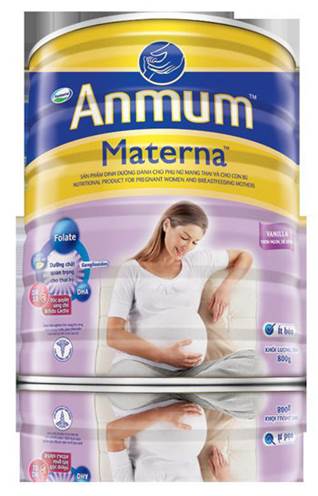Folate is considered to be a golden nutrient
of pregnancy, though, it’s not everyone knows about its importance and how to
provide the nutrient for the body rightly. The followings are 5 important
things about folate that future mothers need to take notice of.
1. Reducing 50-70% the risk of neural tube defect
Folate (vitamin B9) plays an important part
in producing blood cells and the direct effects on neural tube developments of
fetuses. According to The American Centers for Disease Control and Prevention
(CDC), women who are well-provided with Folate before and during pregnancy will
have 50-70% the risk of fetal neural tube defect decreased. Neural tube defect
is a defect that happens in the incomplete neural tube, which leads to abnormal
brain and spinal cord developments. Besides, to pregnant women, Folate helps
prevent the risk of anemia, premature birth, hemorrhage during labor and reduce
casualties in pregnancy like pre-eclampsia…

Understanding the importance of Folate
and providing Folate rightly will help you to have a healthy pregnancy.
2. Many women at reproductive age are lacking in Folate
According to National Institute of
Nutrition that is in co-operation with the research team of Prof. Dr. Tim Green
from Otago University (New Zealand), there’re many women at reproductive age
have the level of Folate in blood under 905nmol/L which is the lowest standard
which prevent them from the risk of neural tube defects. The number has brought
out a problem asking whether people have right awareness of the importance of
Folate.
3. Adding essential amount of Folate on time in accord with each stage

You
should provide Folate for your body 24 weeks before getting pregnant.
Folate is a substance that is important to
fetal formation and mental development in the first stage of pregnancy. If you
start adding Folate when discovering that you’re pregnant, which means you’re
in the 3rd-4th week, you’ll have missed the most
essential period of time. Therefore, women should daily provide 400mcg for your
body in about 24 weeks before getting pregnant. It’s also necessary to add
Folate continuously in pregnancy (600 mcg a day) and the breastfeeding period
(500 mg a day).
4. The daily diet doesn’t provide the essential amount of Folate
Adding Folate can be done by increasing
eating foods that are rich in Folate, such as red meats, egg york, beans
(cowpea, green bean, soy bean, peas...), dark-green vegetables (spinach,
convolvulus, broccoli…), citrus fruits such as orange, lemon, cumquat,
grapefruit... However, Folate is a vitamin that is very soluble in water and
hardly preserved during food processing so the daily diet can’t provide enough
the essential amount of Folate for the body.
5. Optimizing the process of adding Folate
Women who are about to have a baby or
already pregnant are often recommended to add Folate by eating natural foods
and using Folate supplement such as pregnant drugs or formula. Additionally, to
optimize the ability of absorbing Folate and other necessary nutrients,
pregnant women also need to have foods that provide Probiotics – a good
bacterium for digestion and better absorption.

Anmum
Materna is a formula label for pregnant women and women do breastfeeding.
Anmum Materna is a formula label for
pregnant women and women do breastfeeding, studied and developed by Anmum
research center. The products are clinically tested for having the abilities in
increase the amount of Folate, reduce the risk of neural tube defects in
fetuses and prevent anemia in pregnant women. Anmum Materna also contains DHA,
Ganglioside, iron, calcium and almost 30 important nutrients that help the
fetal body and brain fully develop. Especially, the new Anmum Materna is added
Probiotics DR10TM which is a probiotic that is Anmum-proprietary and able to
stimulate digestion and bring better absorption.